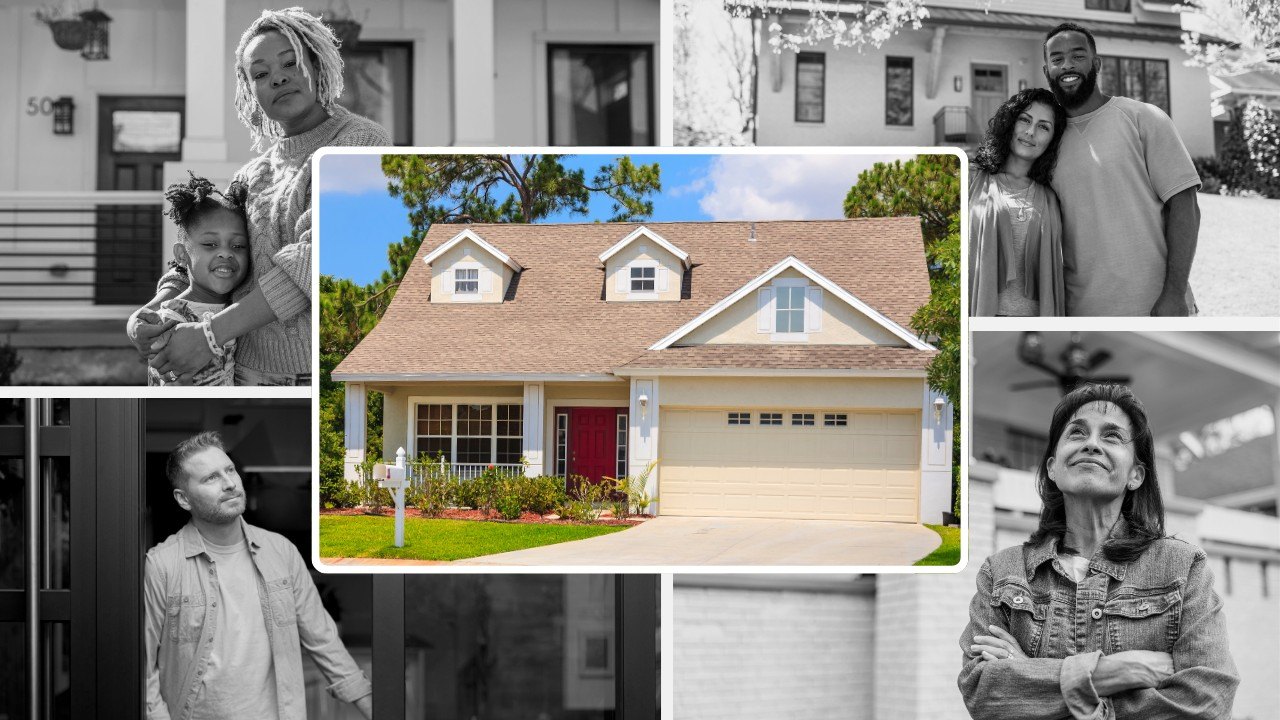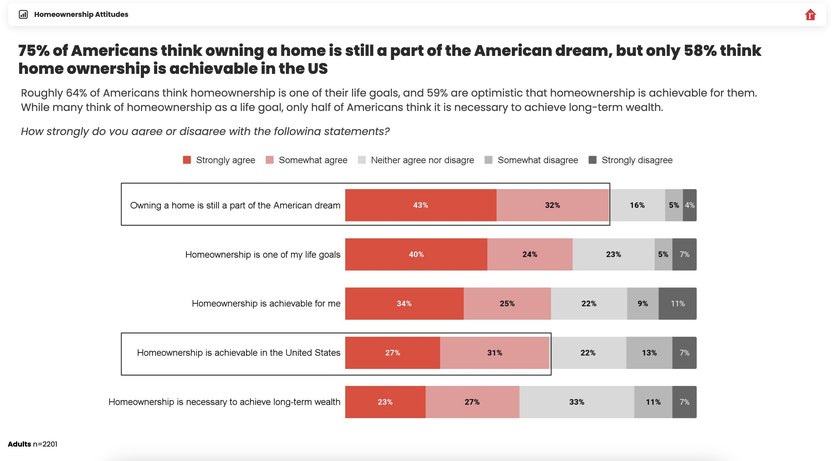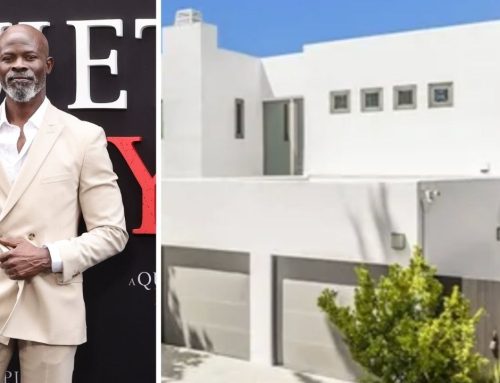
Getty Images (5)
Americans might be divided on many fronts, but what continues to unite them the most is to embrace homeownership as a marker of prosperity and achievement, according to a new survey from Realtor.com®.
The study, first released in November 2024 after Donald Trump‘s election win, has found that nearly 3 out of 4 Americans (75%) believe that homeownership is part of the American dream and 59% of people surveyed believe it’s achievable in the U.S.
Nearly 2 out of 3 respondents consider homeownership one of their life goals, while half are convinced that owning a home is necessary to attaining long-term wealth.
“While current conditions around affordability and the availability of homes make ownership more challenging, many Americans still see that ideal of having a home that belongs to them as a key cornerstone of achieving both the American dream and creating long-term wealth for themselves and their families,” says Laura Eddy, vice president of research and insights at Realtor.com.
The optimism is despite mortgage rates quickly approaching 7% again, after rising each of the first two weeks in January. Nationally, it means the household income now required to afford the typical starter home is $70,164, up more than 100% from just $32,357 in 2019, according to a new analysis from the Realtor.com economic research team.
Typical incomes have also risen in recent years, though not nearly at the same pace. Median household income was $80,610 in 2023, the latest data year available. That was up 17% from $68,700 in 2019, without adjusting for inflation.

Realtor.com
Generational differences in owning a home
A closer look at the numbers shows that while the idea of the American dream centered on homeownership still has a powerful hold on the majority of Americans, the sentiment differs widely across generations.
An overwhelming share of baby boomers (84%) believe that owning a home is an integral part of living the American dream, while the younger generations feel less strongly about it, with 74% of Gen X respondents, 69% of millennials, and 67% of Gen Z agreeing that homeownership is at the heart of achieving the American dream.
Despite the generational differences exposed by the survey, the desire to own a home remains high across the board, with 69% of millennials and 70% of Gen Z identifying it as a life goal, “potentially because they aren’t as likely to own their home,” according to researchers.
Achievable dream
And it’s noteworthy that the majority of Americans—albeit a relatively slight one at 59%—are convinced that becoming a homeowner is not a pie-in-the-sky dream but an achievable goal for them, according to the survey.
Perhaps not surprisingly, baby boomers are the most optimistic about their chances of buying a home (63%), followed by millennials (57%) and Gen X (55%). Gen Z are the least confident that they would be able to afford a house in their lifetime (54%).
Those figures dovetail with the National Association of Realtors®’ 2024 Profile of Buyers and Sellers, which revealed that the median age of homebuyers last year peaked at 56, while the typical repeat property buyer was 61.
But when the responders were asked if homeownership was achievable in the U.S. in general, as opposed to for them specifically, millennials were the least optimistic at just 51%.
Homeownership and wealth
In an interesting twist, less than half of Gen X and boomers see homeownership as a prerequisite to building long-term wealth, even though they are the ones most likely to own their own homes.
Meanwhile, more than 1 in 2 millennials and Gen Z believe that their future wealth will hinge on homeownership.
Millennials and Gen Z are also more likely than their elders to believe that owning a home is necessary to building long-term wealth. For comparison, less than half of Gen X (48%) and boomers (45%) see homeownership as necessary for building long-term wealth, even though they are more likely to own their primary residence.
In fact, only 33% of Gen Z currently own their home, compared with 66% of boomers.



